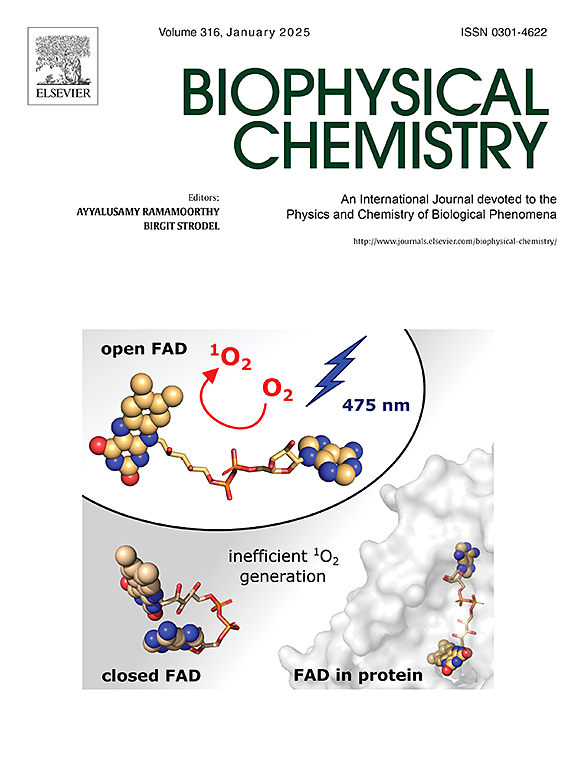Deterministic error propagation in ITC: Revealing multi-fold errors in Kd values under standard conditions
IF 2.2
3区 生物学
Q2 BIOCHEMISTRY & MOLECULAR BIOLOGY
引用次数: 0
Abstract
Accurate determination of the equilibrium dissociation constant (Kd) is essential in fields such as drug discovery and molecular diagnostics, where a rigorous understanding of molecular interactions drives critical decisions. Among established techniques, isothermal titration calorimetry (ITC) is highly valued for its ability to directly capture binding thermodynamics without the need for labeling or immobilization. However, while ITC is often praised for its precision, potential inaccuracies due to the systematic errors in experimental variables (analyte concentrations and measured heat) are frequently overlooked. One key reason for this oversight is the lack of a deterministic framework that explicitly demonstrates how ITC-derived Kd values can be affected by these errors. To address this gap, we derived a closed-form mathematical model for error propagation in ITC-based Kd determination, quantifying the impact of inaccuracies in analyte concentrations and measured heat on the resulting Kd. This framework provides a robust foundation for understanding and predicting the influence of these systematic errors on Kd accuracy. Using this solution, we demonstrate that even within the conventionally recommended c-value range of 10–100, expected systematic errors in concentrations and heat can potentially lead to significant multi-fold deviations in Kd. These findings underscore the need for quantitative accuracy assessments in ITC experiments and highlight the importance of developing practical tools to support such evaluations.

ITC中的确定性误差传播:揭示标准条件下Kd值的多重误差
准确测定平衡解离常数(Kd)在药物发现和分子诊断等领域至关重要,在这些领域,对分子相互作用的严格理解驱动着关键决策。在已建立的技术中,等温滴定量热法(ITC)因其直接捕获结合热力学而无需标记或固定的能力而受到高度重视。然而,虽然ITC经常因其精度而受到称赞,但由于实验变量(分析物浓度和测量热量)的系统误差而导致的潜在不准确性经常被忽视。造成这种疏忽的一个关键原因是缺乏明确说明itc衍生的Kd值如何受到这些错误影响的确定性框架。为了解决这一差距,我们推导了一个基于tc的Kd测定误差传播的封闭数学模型,量化了分析物浓度和测量热量的不准确性对结果Kd的影响。该框架为理解和预测这些系统误差对Kd精度的影响提供了坚实的基础。使用该溶液,我们证明,即使在常规推荐的10-100 c值范围内,浓度和热量的预期系统误差也可能导致Kd的显着多倍偏差。这些发现强调了在ITC实验中进行定量准确性评估的必要性,并强调了开发实用工具以支持这种评估的重要性。
本文章由计算机程序翻译,如有差异,请以英文原文为准。
求助全文
约1分钟内获得全文
求助全文
来源期刊

Biophysical chemistry
生物-生化与分子生物学
CiteScore
6.10
自引率
10.50%
发文量
121
审稿时长
20 days
期刊介绍:
Biophysical Chemistry publishes original work and reviews in the areas of chemistry and physics directly impacting biological phenomena. Quantitative analysis of the properties of biological macromolecules, biologically active molecules, macromolecular assemblies and cell components in terms of kinetics, thermodynamics, spatio-temporal organization, NMR and X-ray structural biology, as well as single-molecule detection represent a major focus of the journal. Theoretical and computational treatments of biomacromolecular systems, macromolecular interactions, regulatory control and systems biology are also of interest to the journal.
 求助内容:
求助内容: 应助结果提醒方式:
应助结果提醒方式:


